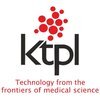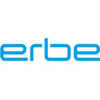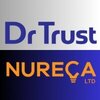
i
ICU Works
Filter interviews by
ICU Works Clinical Application Specialist Interview Questions, Process, and Tips
ICU Works Clinical Application Specialist Interview Experiences
2 interviews found
I applied via LinkedIn and was interviewed in Mar 2024. There was 1 interview round.
(28 Questions)
- Q1. What led you to pursue a career as a clinical application specialist?
- Ans. As a clinical application specialist, I am able to combine my love for the medical field with my passion for helping people. I was drawn to this career path because it allows me to make a meaningful impact on patient care by supporting healthcare professionals and ensuring that medical devices are used safely and effectively.
- Q2. How do you collaborate with other departments within a medical device company to best support healthcare professionals?
- Ans. Collaboration with other departments within a medical device company is essential to best support healthcare professionals. I work with product development teams to ensure that medical devices are user-friendly and intuitive, while also collaborating with sales and marketing teams to provide accurate information about products. Additionally, I collaborate with customer support teams to ensure that healthcare profession...
- Q3. What do you think is the most important trait for someone in a clinical application specialist role?
- Ans. I believe that the most important trait for someone in a clinical application specialist role is the ability to effectively communicate with healthcare professionals. This includes being able to explain complex medical device concepts in simple terms, as well as being able to actively listen to feedback and concerns.
- Q4. How do you balance the needs of healthcare professionals with the needs of patients when it comes to medical device implementation?
- Ans. Balancing the needs of healthcare professionals with the needs of patients is essential when implementing medical devices. I work with healthcare professionals to ensure that medical devices are safe and effective, while also considering patient experience and comfort. This includes providing education and training to healthcare professionals on how to use medical devices in a way that maximizes patient comfort and saf
- Q5. . What do you think is the biggest challenge facing the medical device industry today, and how do you address it in your work?
- Ans. One of the biggest challenges facing the medical device industry today is ensuring that new technologies are safe and effective for patients. I address this challenge in my work by advocating for rigorous testing and evaluation protocols during the development phase of a new medical device. Additionally, I work with healthcare professionals to ensure that medical devices are used in the most appropriate manner to maxim
- Q6. What experience do you have in creating and delivering training programs for medical devices?
- Ans. I have experience creating and delivering training programs for medical devices for over five years. This includes developing training materials, conducting onsite training sessions, and providing remote training and support.
- Q7. How do you prioritize your workload when working with multiple healthcare centers and facilities?
- Ans. Prioritizing workload when working with multiple healthcare centers and facilities requires effective time management skills and triage of urgent versus non-urgent tasks. I work closely with healthcare professionals to understand their needs and prioritize accordingly. I also utilize project management tools to help ensure that all tasks are completed in a timely and effective manner.
- Q8. What is your approach to building and maintaining relationships with key healthcare professionals in the field?
- Ans. Building and maintaining relationships with key healthcare professionals in the field requires active listening, responsiveness, and trust. I work to build relationships with healthcare professionals by being available to answer questions and address concerns, as well as by asking for feedback on how I can best support them.
- Q9. How do you handle situations when healthcare professionals are resistant to using a new medical device?
- Ans. When healthcare professionals are resistant to using a new medical device, it is important to understand their concerns and fears. I work to address these concerns by providing education and training on the benefits of the medical device, as well as by addressing any negative perceptions or misinformation.
- Q10. How do you work with healthcare professionals to ensure that patient outcomes are maximized with the use of a medical device?
- Ans. I work with healthcare professionals to ensure that patient outcomes are maximized by providing education and training on the appropriate use and application of medical devices. Additionally, I work to ensure that healthcare professionals are aware of any potential side effects or negative outcomes associated with a medical device.
- Q11. What have been some of your biggest accomplishments as a clinical application specialist in the medical device industry?
- Ans. Some of my biggest accomplishments as a clinical application specialist in the medical device industry include developing effective training programs for medical devices, improving patient outcomes through the use of medical devices, and supporting healthcare professionals in delivering high-quality, patient-centered care.
- Q12. How do you analyze and report on medical device usage and success rates?
- Ans. Analyzing and reporting on medical device usage and success rates requires effective data management and analysis skills. I work closely with healthcare professionals to collect and analyze data on medical device usage, as well as to identify opportunities for improvement or changes in practice.
- Q13. What is your experience working with remote support systems such as telemedicine?
- Ans. I have experience working with remote support systems such as telemedicine to provide training and support to healthcare professionals. This includes conducting remote training sessions and troubleshooting issues via videoconference.
- Q14. Can you discuss any experience you have working with medical device recalls or safety alerts?
- Ans. I have experience working with medical device recalls and safety alerts to ensure that patient safety is maintained. This includes working with healthcare professionals to identify any affected patients and providing support and education on next steps.
- Q15. How do you approach issues related to medical device interoperability and compatibility with existing systems?
- Ans. Approaching issues related to medical device interoperability and compatibility with existing systems requires effective communication and collaboration with healthcare professionals and IT specialists. I work to understand the requirements and limitations of existing systems and find solutions that balance the needs of all stakeholders.
- Q16. Can you discuss any experience you have had with remote or virtual training and support?
- Ans. I have extensive experience providing remote or virtual training and support for medical devices. This includes utilizing telemedicine and videoconferencing technologies to provide support and education to healthcare professionals who are located in remote or underserved areas.
- Q17. How do you integrate feedback from healthcare professionals into product development cycles?
- Ans. Integrating feedback from healthcare professionals into product development cycles is essential for ensuring that medical devices meet the needs of end-users. I work to collect and incorporate feedback from healthcare professionals into the iterative design and development process to ensure that each medical device is optimized for the end-user.
- Q18. What are your long-term career goals as a clinical application specialist in the medical device industry?
- Ans. As a clinical application specialist in the medical device industry, my long-term career goals are to continue providing exceptional support and training to healthcare professionals, while also working to drive innovation and advancements in the medical device field. I am passionate about improving patient outcomes and hope to be at the forefront of finding new and innovative solutions that drive the healthcare industr
- Q19. What is the purpose of blood purification devices?
- Ans. Blood purification devices are used to remove waste products and toxins from the blood.
- Q20. What are some of the risks associated with using blood purification devices?
- Ans. Some of the risks associated with using blood purification devices include infections, blood clotting, and bleeding.
- Q21. How can hospitals ensure that their clinical staff are properly trained on blood purification devices?
- Ans. Hospitals can ensure that their clinical staff are properly trained on blood purification devices by providing comprehensive training and education programs, hands-on experience with the devices, and ongoing support and education.
- Q22. What are some of the key factors to consider when selecting blood purification devices for a hospital?
- Ans. Some of the key factors to consider when selecting blood purification devices for a hospital include patient population, device efficacy, device safety, and cost.
- Q23. What are the different types of blood purification devices available?
- Ans. The different types of blood purification devices available include dialysis machines, continuous renal replacement therapy (CRRT) machines, and plasma exchange machines.
- Q24. What is the role of a Clinical Application Specialist for blood purification devices?
- Ans. The role of a Clinical Application Specialist for blood purification devices is to provide training, support, and education to clinical staff on the proper use and maintenance of these devices.
- Q25. How does the Clinical Application Specialist work with hospitals and healthcare facilities to ensure effective use of blood purification devices?
- Ans. The Clinical Application Specialist works with hospitals and healthcare facilities by providing onsite training and education programs, conducting device assessments and maintenance checks, and providing ongoing support to clinical staff.
- Q26. How can Clinical Application Specialists help to optimize patient outcomes with blood purification devices?
- Ans. Clinical Application Specialists can help to optimize patient outcomes by providing clinical staff with thorough training, conducting ongoing support programs, and staying up-to-date with the latest developments and best practices in blood purification devices.
- Q27. How can Clinical Application Specialists ensure that patients receive care that is tailored to their individual needs when using blood purification devices?
- Ans. Clinical Application Specialists can ensure that patients receive care that is tailored to their individual needs by collaborating closely with consulting physicians and medical staff to develop personalized treatment plans that take into account the unique needs of each patient.
- Q28. Why is it important for hospitals and healthcare facilities to have a Clinical Application Specialist on staff for blood purification devices?
- Ans. It is important for hospitals and healthcare facilities to have a Clinical Application Specialist on staff for blood purification devices to ensure that clinical staff are properly trained, that devices are being used effectively and efficiently, and that patient outcomes are optimized.
Interview Preparation Tips
2. Demonstrate knowledge of best practices for training clinical staff on blood purification devices to show potential employers your expertise in the field.
3. Research the different types of blood purification devices available to show that you have a comprehensive understanding of the field.
4. Highlight the importance of selecting the right blood purification devices, emphasizing factors such as device efficacy, safety, and cost.
5. Showcase your role in optimizing patient outcomes by providing training, support, and education to clinical staff utilizing blood purification devices.
6. Emphasize your collaboration with healthcare facilities and hospitals to ensure that clinical staff receive the proper training, support, and education they need.
7. Highlight the importance of tailoring patient care to individual needs to demonstrate a patient-focused mindset.
8. Emphasize the importance of keeping up-to-date with the latest developments and best practices in blood purification devices.
9. Demonstrate your ability to provide personalized treatment plans by collaborating closely with consulting physicians and medical staff.
10. Highlight the importance of the Clinical Application Specialist role as a key component in ensuring the effective and efficient use of blood purification devices and optimal patient outcomes.
I applied via Company Website and was interviewed in Feb 2024. There were 3 interview rounds.
(1 Question)
- Q1. Basic Introduction , Hoibbies , Family background etc
They ask to picup any product from www.icuworks.com their official website and ask you to prepare a product presntation of max 10 slides and present it to the technical team
(1 Question)
- Q1. Basically a salary negotiation round . This generaly you wont get in any company . They will not ask you what was your previous salary . They will ask what is you expectation
Interview Preparation Tips
Top trending discussions






ICU Works Interview FAQs
Some of the top questions asked at the ICU Works Clinical Application Specialist interview -
Tell us how to improve this page.
Interview Questions for Popular Designations
- Clinical Research Coordinator Interview Questions
- Clinical Research Associate Interview Questions
- Clinical Pharmacist Interview Questions
- Clinical Investigator Interview Questions
- Clinical Data Analyst Interview Questions
- Clinical Data Specialist Interview Questions
- Clinical Dietician Interview Questions
- Clinical SAS Programmer Interview Questions
- Show more
People are getting interviews through
Interview Questions from Similar Companies
ICU Works Clinical Application Specialist Reviews and Ratings
based on 1 review
Rating in categories

Hollister Medical
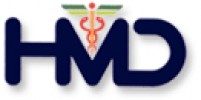
Hindustan Syringes & Medical Devices

Appasamy Associates
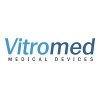
Vitromed Healthcare
Calculate your in-hand salary
- Home >
- Interviews >
- ICU Works Interview Questions >
- ICU Works Clinical Application Specialist Interview Questions

